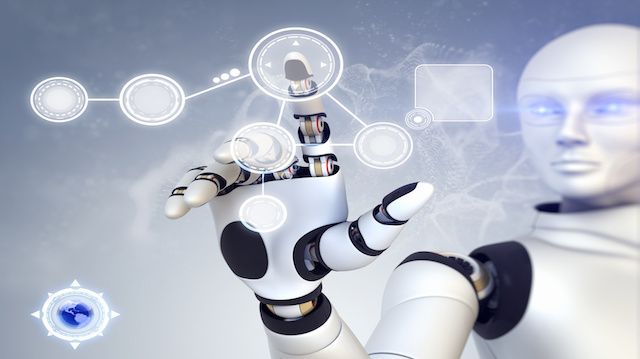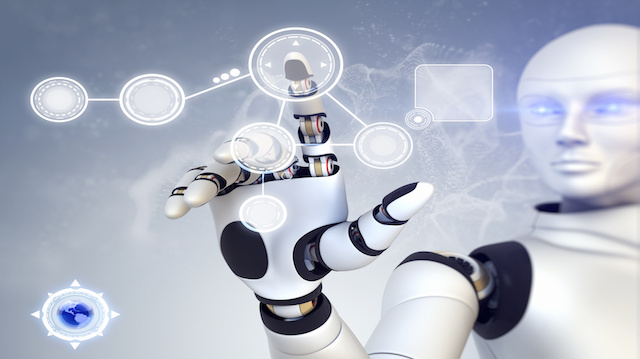
Artificial intelligence made significant leaps and bounds last year, including refined facial recognition software, hyper-specific mapping technology and experimental devices. Artificial intelligence (AI) is changing the way we interact with technology and the world around us, and we can expect to see even more this year.
Deep learning
We’ve reached a point in history when science fiction is turning into science fact: machines now can learn like humans. That technology is referred to as “deep learning.” Through exposure to surroundings, images and concepts, computers begin to perceive the world around them. Based on algorithms that essentially model the way neurons in our brains change when exposed to new experiences, deep learning is being used by companies such as Google, as well as experimental startups — including a company that used a device designed to perceive elements in the environment and relay the information via an earpiece to the blind.
Deep learning has allowed functions such as Facebook photo face recognition and Skype translation abilities to change the way we communicate. Google uses this same technology in its search engine and in developing its chatbot, while Twitter uses deep learning to help identify pornography so users may block it from their feeds.
How AI affects our lives
In addition to making our social media experience better, safer and more delightful, artificial intelligence can actually make our lives better. Take IBM. Last year, the company purchased Merge Healthcare, a maker of healthcare technology for specialties such as cardiology, radiology, orthopedics, eye care and others. The data bank of Merge’s 30 billion images is being used by IBM to “teach” its own AI supercomputer, Watson, about the human body. It is hoped that Watson and similar technologies will be able to detect cancer and other maladies that professionals might miss during regular tests.
Jeremy Howard, CEO of Enlitic, a startup that is also focused on medical image processing says, “You have to scroll through hundreds and hundreds of slices looking for a few little glowing pixels that appear and disappear, and that takes a long time, and it is very easy to make a mistake.” Enlitic is working to create an algorithm through deep learning that will bring even more accuracy to radiological tests, and ultimately save lives.
Going deeper
 Dr. Gary Marcus of New York University’s psychology department claims that we can go deeper than deep learning. He cited his son’s inferences when learning numbers as evidence that deep learning may be too simple. While in the backseat of the car one day, Marcus’ son asked if the number 11 on a sign was “onety-one” since other double-digit numbers follow a pattern like “twenty-two” and “fifty-five.”
Dr. Gary Marcus of New York University’s psychology department claims that we can go deeper than deep learning. He cited his son’s inferences when learning numbers as evidence that deep learning may be too simple. While in the backseat of the car one day, Marcus’ son asked if the number 11 on a sign was “onety-one” since other double-digit numbers follow a pattern like “twenty-two” and “fifty-five.”
“He had inferred that there is a rule about how you put your numbers together,” Marcus told Technology Review. “Now, he had overgeneralized it, and he made a mistake, but it was a very sophisticated mistake.”
Marcus brings up an important point: What happens if technology, through deep learning, develops to the point that most mistakes are mitigated but the mistakes made are very high-level, sophisticated mistakes based on inferences made through pattern detection? But as the founder of a new startup himself, Geometric Intelligence, Marcus is working to answer that question by making AI more human.
What does all this mean for the future? We’ll definitely get better experiences from our personal devices, and we might even see technology aimed at helping people with disabilities hit the shelves this year. Some experts are predicting that AI will soon whisper suggestions to us and function as unobtrusive mini personal assistants, but only time will tell.
Where do you think AI will take us this year?
—Megan Winkler
Megan Winkler is an author, historian, Neurosculpting® meditation coach, certified nutritional consultant and DIY diva. When she’s not writing or teaching a class, Megan can be found in the water, on a yoga mat, learning a new instrument or singing karaoke. Her passion for a healthy mind-body-spirit relationship motivates her to explore all the natural world has to offer.
Sources:
http://www.wired.com/2016/01/2015-was-the-year-ai-finally-entered-the-everyday-world
http://www.technologyreview.com/featuredstory/544606/can-this-man-make-ai-more-human
http://www.technologyreview.com/news/540141/why-ibm-just-bought-billions-of-medical-images-for-watson-to-look-at
http://www.zdnet.com/article/ibm-buys-merge-for-1-billion-gives-watson-medical-imaging-heft
http://techcrunch.com/gallery/my-2016-tech-predictions/slide/7

